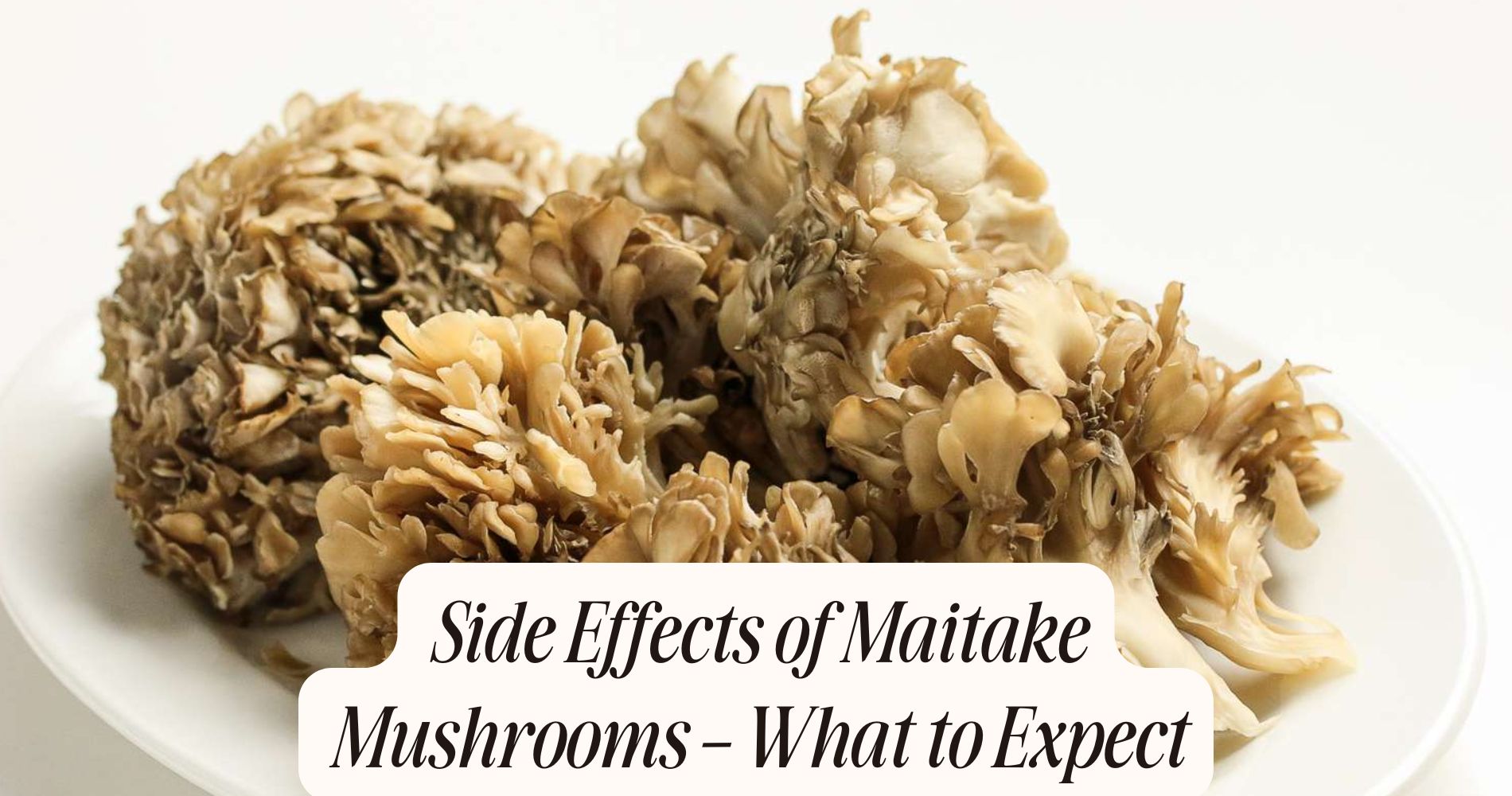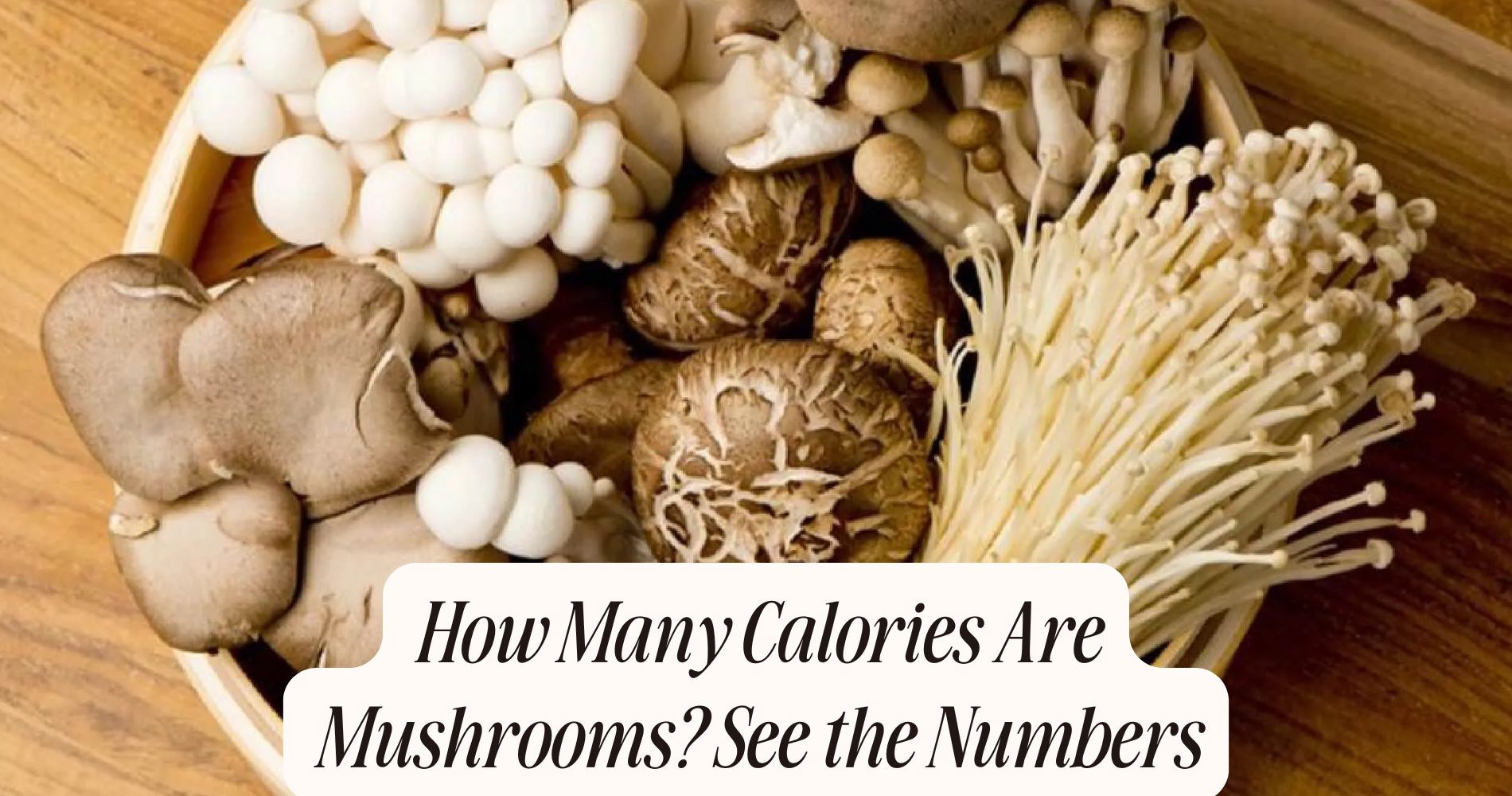
Side Effects of Maitake Mushrooms – What to Expect
When considering the side effects of maitake mushrooms, it's important to know that while most people tolerate them well, some may experience mild digestive issues such as gas or bloating. In rare cases, allergic reactions like skin rashes or itching can occur. Additionally, maitake mushrooms may impact blood sugar and blood pressure levels, especially if you are taking related medications, so regular monitoring is crucial. Since individual reactions can vary, it’s essential to assess potential risks, particularly if you have underlying health conditions or are on prescription medications.
Digestive Disturbances
Although maitake mushrooms are generally considered safe for most people, some individuals may experience digestive disturbances after consumption. You might notice gastrointestinal discomfort, such as bloating, gas, or mild stomach upset, especially if you eat a large portion or aren't used to high-fiber foods.
These symptoms often occur because maitake mushrooms contain complex carbohydrates and fibers that can be difficult for some digestive systems to break down. Evidence suggests that cooking maitake mushrooms thoroughly can help reduce the risk of stomach upset by making them easier to digest.

If you're new to maitake mushrooms, start with a small serving to see how your body reacts. Most people tolerate them well, but if you continue to experience gastrointestinal discomfort, consider limiting your intake or consulting a healthcare provider.
Allergic Reactions
While maitake mushrooms rarely cause problems, some people can develop allergic reactions after consuming them. If you have a maitake mushrooms allergy, you might notice symptoms such as itching, swelling, hives, or even difficulty breathing shortly after eating or handling these mushrooms. These reactions happen because your immune system mistakes certain mushroom proteins as threats.
Not all allergies stem from eating maitake; you could also experience mushroom contact dermatitis. This condition causes redness, itching, or rash where your skin touches the mushrooms.
Though these reactions are uncommon, it’s important to recognize them early. If you’ve had allergic reactions to other mushrooms, you might be at greater risk.
Always seek medical advice if you suspect an allergy to maitake mushrooms or develop any concerning symptoms.
Blood Sugar Fluctuations
If you manage your blood sugar levels, it's important to know that maitake mushrooms may affect glucose regulation. Research suggests that maitake mushrooms can enhance insulin sensitivity, which means your body may use insulin more effectively to lower blood sugar.
While this can be beneficial, especially if you're at risk for high blood sugar, it can also lead to blood sugar dropping lower than expected in some individuals. You might notice symptoms like dizziness, sweating, or fatigue if your blood sugar falls too low.

It's a good idea to monitor your levels more closely when you add maitake mushrooms to your routine. By paying attention to your body's response, you can better understand how maitake mushrooms influence your blood sugar regulation.
Interaction With Medications
Because maitake mushrooms can influence blood sugar, their effects may extend to how certain medications work in your body. If you’re taking medications for diabetes, combining them with maitake could intensify the medication’s effect, sometimes leading to hypoglycemia.
In addition, herb interactions are possible if you’re using other supplements or herbal remedies that lower blood sugar or affect your immune response. Maitake mushrooms might also impact nutrient absorption, particularly when taken with medications that alter your digestive system, like certain antibiotics or cholesterol-lowering drugs.
Always let your healthcare provider know about any herbs or supplements you’re using. They can help you monitor for unwanted effects and adjust your medication as needed.
Careful coordination will help you avoid unexpected interactions and maintain your overall health.
Impact on Blood Pressure
Although maitake mushrooms are often praised for their potential health benefits, they may also influence blood pressure levels. If you have concerns about maitake mushrooms and blood pressure, it’s important to know that some studies suggest these mushrooms might have a mild blood pressure-lowering effect.
This impact on hypertension could be beneficial if you have high blood pressure, but it may be risky if your blood pressure is already low or if you take antihypertensive medication. You should monitor your blood pressure regularly when adding maitake mushrooms to your diet, especially if you’re managing hypertension or low blood pressure.

Always consult your healthcare provider before making significant dietary changes, as individual reactions can vary and interactions with medications may occur.
Effects on Pregnancy and Breastfeeding
When considering maitake mushrooms during pregnancy or breastfeeding, you'll find that scientific research remains limited. Currently, there's not enough reliable data to confirm the safety of maitake mushrooms pregnancy use or their effects while breastfeeding.
While maitake is often consumed as food, supplements contain concentrated extracts that may act differently in your body. For maitake breastfeeding safety, experts generally recommend caution, as active compounds could transfer to your baby through breast milk.
Without solid evidence on potential risks or benefits, it's wise to avoid high doses and supplements during these sensitive times. Always consult your healthcare provider before adding maitake mushrooms to your diet if you're pregnant or breastfeeding.
This approach helps ensure the best outcomes for you and your baby.
Possible Immune System Overstimulation
While maitake mushrooms are well-known for supporting immune health, there's some concern that they might overstimulate your immune system, especially if you already have an autoimmune condition.
Research suggests maitake can enhance immune responses by activating certain white blood cells. However, if your immune system is already overactive, this immune overstimulation could potentially trigger flare-ups or worsen symptoms.

It's also important to contemplate possible herbal interactions. Some herbal supplements, like echinacea or astragalus, also boost immune activity. Taking maitake alongside these could increase the risk of excessive immune responses.
Although severe issues are rare, experts recommend caution if you're managing autoimmune disorders or taking other immune-stimulating herbs. If you notice heightened symptoms, consult your healthcare provider about continuing maitake mushrooms in your routine.
Safe Dosage and Usage Considerations
Before adding maitake mushrooms to your routine, it’s important to understand how much is considered safe and how to use them effectively. Most studies suggest that up to 1–3 grams of maitake extract per day appears safe for adults.
If you’re using fresh mushrooms from reliable mushroom cultivation sources, culinary uses typically involve 50–100 grams per serving. Start with small amounts to monitor your body’s response, especially if you’re new to maitake.
Always wash and cook the mushrooms thoroughly, as raw consumption isn’t recommended due to potential digestive discomfort. If you take medications or have underlying health conditions, check with your healthcare provider before adding maitake.
Being mindful of dosage and preparation methods helps you enjoy their benefits while minimizing side effects.
Safe Mushroom Benefits Without the Side Effects: SUPER MUSHROOM GUMMIES
If you're looking to enjoy the health benefits of mushrooms without worrying about potential side effects, try Well Gummies' SUPER MUSHROOM GUMMIES! These convenient, chewable gummies contain 10 functional mushrooms carefully formulated to support brain function, energy, and immunity—all without the digestive issues or side effects some whole mushrooms might cause. Enjoy the taste of fresh wild berries, just as delicious as your favorite candy. No jitters, no crash—just natural, balanced energy and a clear mind. Shine all day with Well Gummies!
Frequently Asked Questions
Can Maitake Mushrooms Cause Changes in Mood or Mental State?
You might wonder if maitake mushrooms cause mood swings or affect your mental clarity. Research hasn’t shown consistent evidence linking them to changes in mood or mental state, but individual reactions can vary, so monitor your response.
Do Maitake Mushrooms Affect Athletic Performance or Energy Levels?
You might experience an energy boost or stamina enhancement from maitake mushrooms, as some research suggests benefits in these areas. However, scientific evidence is limited, so don’t expect dramatic effects on athletic performance or energy levels without more study.
Are Maitake Mushrooms Safe for Pets to Consume?
You should prioritize pet safety because mushroom toxicity can be a concern. While maitake mushrooms aren't known to be toxic to pets, research is limited. It's best to consult your veterinarian before offering maitake to your pet.
Can Maitake Mushrooms Influence Thyroid Function?
You might wonder if maitake mushrooms affect thyroid regulation or hormonal balance. Current research suggests there's no strong evidence linking maitake to significant thyroid changes in humans, but you should consult your doctor before making dietary changes.
Do Maitake Mushrooms Have Any Impact on Skin Health?
You might notice that maitake mushrooms rarely cause direct benefits or harm to skin health, but they could increase skin sensitivity or trigger allergic reactions in some people. Research is limited, so monitor your skin for changes.
Conclusion
While maitake mushrooms offer many potential health benefits, you should be aware of possible side effects like digestive upset, allergic reactions, and blood sugar fluctuations. If you’re taking medications or have underlying health conditions, talk to your doctor before adding maitake to your routine. There’s limited research on its safety during pregnancy and breastfeeding, so it’s best to be cautious. Stick to recommended dosages and monitor your body’s response to enjoy maitake mushrooms safely.




